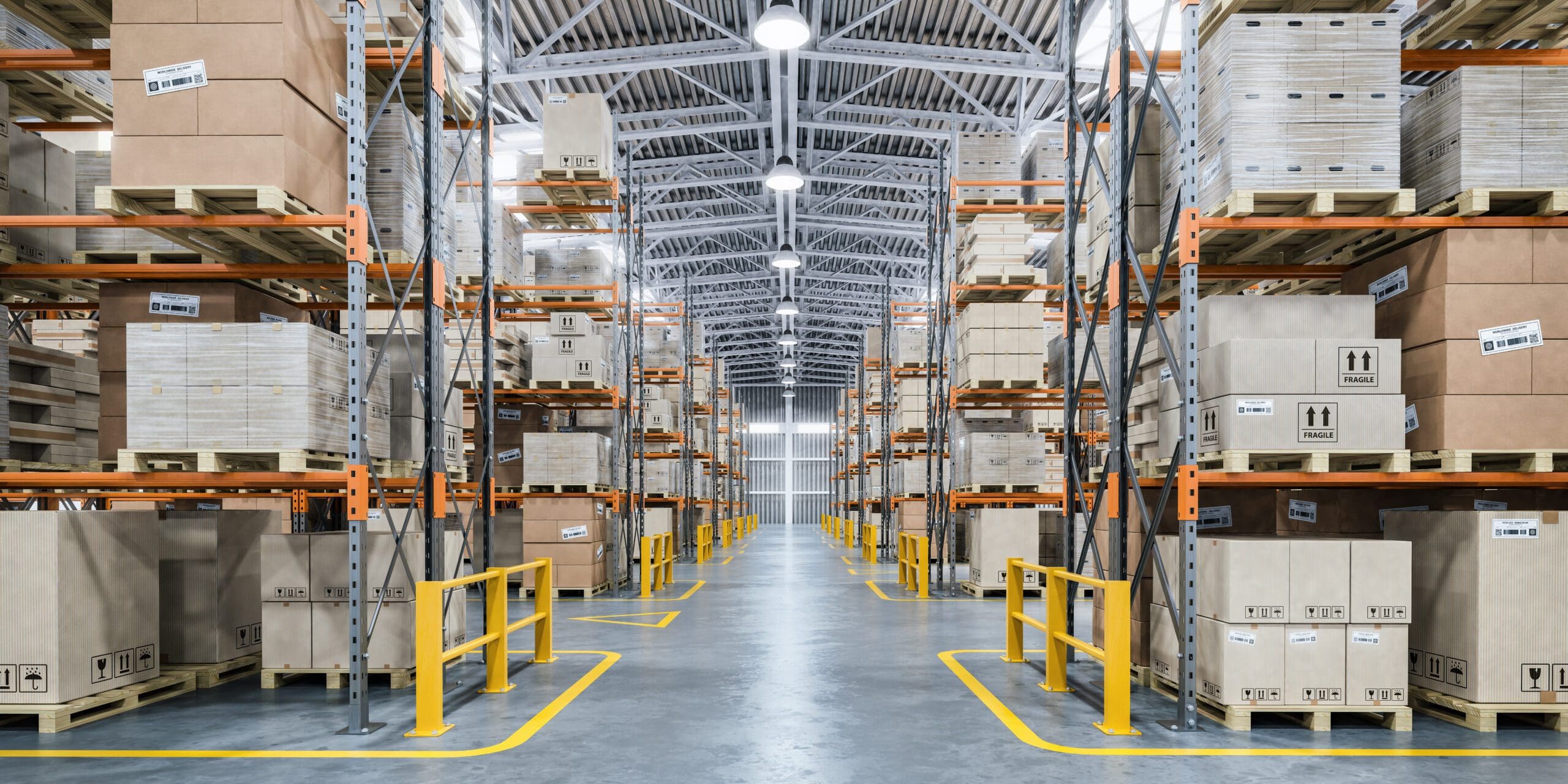When it comes to managing a business, a well-oiled logistics department is fundamental to success. Having an understanding of how resources are managed and moved throughout the supply chain allows businesses to determine inefficiencies that may be affecting the overall process. While it sounds straightforward, logistics management is often dependent on a plethora of different factors that affect each facet of the business.
Think of logistics management as the spine of your business. Without it, it would be difficult for the other aspects of your business to function and hit the ground running. From initial production to the timely delivery of goods, logistics management plays a significant role in improving a company’s internal operations while positively affecting its bottom line.
In this article, we will take a look at some of the most valuable tips to better manage your logistical needs and highlight factors that underscore its importance.
What is logistics management?
In business, logistics management is a subprocess of the extensive supply chain management umbrella. It specifically refers to the process of effectively and efficiently managing goods from procurement to consumption. In simpler terms, proper logistics management ensures that a company – at any given moment – has the ability to procure the right amount of goods and secure enough inventory to be able to satisfy customer demand.
Logistics and Supply Chain Management: Are they the same?
While sometimes used interchangeably, logistics and supply chain management are two different concepts. Logistics management, as mentioned above, is part of the overarching concept of supply chain management. Supply chain management encompasses the full spectrum of supply chain activities from the sourcing of raw material to the delivery of the finished product. As a result, companies that pay attention to their supply chain processes can gain a competitive advantage in the marketplace.
Another key difference between logistics and supply chain management is that logistics management is primarily focused on satisfying customer demand. On the other hand, supply chain management oversees the entire production process for a particular good or service while also streamlining the delivery process.
What is the importance of logistics management?
Why is logistics management important? Without logistics management, a business would most likely miss out on various opportunities to make its processes leaner and more cost-effective. An efficient logistics management plan enables you to monitor and improve your business’ logistics operations to develop a more systematic flow of goods throughout the supply chain.
How can poor logistics management affect your business?
As mentioned above, logistics management is one of the most important (if not the most important) aspects of your business. Effective logistics management is crucial as it directly affects your business’ productivity as well as your ability to meet customer demand. But what happens to your business if you have poor logistics management practices?
- Delivery delays – Poor logistics management can lead to inefficiencies that will result in delivery delays. Moreover, delays can have a direct impact on the shelf-life of your products and could affect their overall quality.
- Low customer satisfaction – Everyone knows that maintaining a great relationship with your customers is a great way to ensure that your customers keep coming back. An inefficient logistics management process can cause late deliveries, spoiled/defective products, and loss of customers.
- Loss of profit – If you cannot maintain optimal delivery times due to poor logistics management, your relationship with your customers is bound to decline. Remember, losing potential and/or repeat customers means loss of profit.
What are some valuable tips for effective logistics management?
Note that there is no all-encompassing strategy when it comes to logistics management. A company’s logistics management plan should take into consideration the intricacy of a company’s entire logistics operation, the type of products or services that they are offering, and the various risk factors surrounding each product.
In essence, before developing a logistics management plan, it would be wise to first take a look into your business’s unique needs in order to determine plans and strategies that would best fit the current state of your operations. Now that we got that out of the way, check out some valuable tips for effective logistics management.
Determine your goals
As with any solid plan, you first need to determine the key goals that you would like to achieve. In order to implement a great logistics management strategy, business owners would have to identify internal logistics goals and objectives from increasing efficiency to reducing transportation and logistics costs. Without a concrete goal, it would be difficult for businesses to develop a plan that would improve their logistics management operations. Some of the most common goals of logistics management are:
- Make processes leaner
- Put measures in place to better manage risk
- Ensure great inventory turnover
- Improve the quality of service
- Aim to reduce overall costs
Plan, plan, and plan some more!
Now that you have specific goals in mind, it’s now time to devise a plan that would help you achieve those objectives. Logistics planning anticipates the risks, challenges, and other parameters as well as the time, transportation, and cost involved in the logistics process. Having a solid plan in place would enable businesses to better track, control, and deliver goods.
However, no matter how robust a logistics plan is, unforeseen circumstances will always keep you on your toes. For this, you need a contingency plan.
Always have a contingency plan
Even an experienced logistics manager, if you decide to hire one, will supplement your logistics plan with a contingency plan in case something goes wrong. One of the main benefits of having a contingency plan is that it eliminates spur-of-the-moment decisions during crises and serves as a guide for every possible eventuality. Put simply, a contingency plan keeps your goods moving despite any obstacle.
Hire a logistics manager
Depending on the size of your operation, hiring a logistics manager could help you keep track of your logistics needs especially when your business is experiencing rapid growth. Typically, logistics managers are up-to-date when it comes to the latest logistics technology as well as the modern techniques on how to maximize your business’ entire logistics operation.
However, the best thing that a logistics manager will bring to your business is that they will allow you to focus on your core competencies. As a business owner, your focus should be expanding the business as well as improving each aspect of your operation. Fortunately, a logistics manager will give you peace of mind knowing that an expert is handling one of the most essential processes in your business.
Leverage the power of automation
It’s no secret that logistics depend on the timely delivery of goods or services. In the digital age, technology has revolutionized how businesses can make the entire supply chain leaner and cost-effective. One such tool is automation. In technology, automation refers to the reduction of human intervention in certain business facets that require tedious and repeatable functions. In introducing automation to your logistics operation, human error would be eliminated and data can be monitored and tracked in real-time.
Use data to your advantage
In addition to automation, the rise of big data has made it possible for businesses to identify new opportunities, make smarter business decisions, and improve various functions. Whether it’s shipping or warehousing, almost all logistics processes now depend on data to ensure maximum value. The great thing about data is that it’s unbiased and transparent. Data derived from logistics operations play an important role in the optimization of the procurement process, inventory management, and shipping. Using data to your advantage also enables you to monitor your performance by identifying and keeping track of the necessary metrics and key performance indicators (KPIs).
Logistics should align with inventory management
One important thing to keep in mind is that logistics should be aligned with your inventory management practices. Inventory management is a function of logistics that focuses on the products that a company sells to its customers. When developing a logistics management plan, it is vital to come up with an inventory management strategy that best fits your business model, sourcing method, and fulfillment system.
A robust inventory management system ensures that your business has the right amount of stock, at the right time, to fulfill customer demand. It will also minimize storage costs, avoid stockouts and excess stock, improve cash flow, and guarantee customer retention. Like poor logistics management, poor inventory management can lead to harmful implications that could hurt your business’s finances. Keeping an accurate stock record means you have complete oversight of how much cash you have tied up in your inventory.
Pro tip: For those experiencing cash flow issues due to poor inventory management, you can check out Kickfurther. Kickfurther is the world’s first online inventory financing platform that enables companies to access funds that they are unable to acquire through traditional sources. We connect brands to a community of eager buyers who help fund the inventory on consignment and give brands the flexibility to pay that back as they receive cash from their sales. This alleviates the cash-flow pinch that lenders can cause without customized repayment schedules, allowing your brand to scale quickly without impeding your ability to maintain inventory or financial flexibility.
Final Thoughts
Without a plan and an implementation strategy, these tips will remain just that: tips. Unfortunately, there’s no such thing as an all-encompassing “best logistics management method” or “best logistics management plan” out there that would help you manage your logistics processes better. What works best for your business depends on a plethora of factors that only you would be able to identify. While it seems tedious, it is a necessary undertaking to ensure the success of your business.









